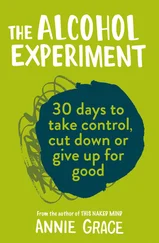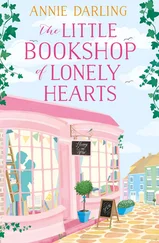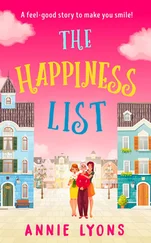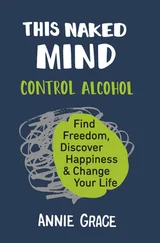Let’s keep this easy, okay? If we don’t have to think hard about drinking, the experiment will be less stressful.
So, say someone asks you, “Would you like a drink?”
You could answer in the negative: “No, thanks. I’m not drinking tonight.”
Or you could answer in the positive: “Yes! I’d love a club soda with lime.”
By speaking with positive statements, your subconscious mind isn’t triggered into activity. It’s happy. It believes you enjoy drinking, and so you’re enjoying a drink. It just happens to be a nonalcoholic drink this time.
How We Talk Changes Our Experiences
Furthermore, according to Albert Ellis, one of the fathers of modern psychology, how we talk about what is happening to us and around us actually changes our emotions around our experiences! One of the most powerful things I want you to learn in this experiment is that you are much more in control of your life than you may realize. Sure, it takes practice and awareness to begin to shape our emotions and experiences through our language—specifically the language we use when speaking to ourselves—but, wow, is it worth it!
I honestly can’t believe the changes that have happened inside me once I learned the importance of how I talk to myself—the words I use and even the tone. Do yourself a favor: Over the next few days, start to pay attention to how you speak to yourself. Ask yourself if you would speak to a stranger like that? What about someone you consider a friend? What about your child?
Listening to Your Inner Voice
You may find it hard to “hear” your inner voice. If that’s the case, do this—notice your emotions. When you start to feel anxious, upset, or stressed (or any other negative emotion), use that as a signal to pause and reflect on what you were just saying to yourself.
How we speak to ourselves has a huge impact on our emotions. This is true not only around drinking but in all areas of our lives. Studies show that the majority of most people’s thinking is negative and self-destructive. However, since our inner dialogue is constant, we are not often aware of it. The next time you start to feel badly about yourself, I want you to stop and notice the words you just said inside your head. Write them down. And then ask yourself, Was it nice? Was it helpful? Was it something you would say to someone you love? Was it even something you would say to a complete stranger, or are you talking to yourself in a more destructive way than you would talk to a complete stranger? Take time every day to listen to your inner dialogue and consciously try to speak to yourself with respect. Like any habit, how you speak to yourself is unconscious, and it will take some conscious awareness to discover exactly what that inner dialogue consists of. But if you can learn to speak to yourself as you would speak to someone you love, your entire life can change for the better.
TODAY,observe your language patterns—both what you say out loud and the self-talk in your head (we’ll get into even more about self-talk later in this book). And write down the words you’re using on a piece of paper. Do you use the same words over and over? Are they negative or positive? When you think about alcohol, do you feel sorry for yourself and tell yourself you are not able to drink? Or do you feel excited about the challenge and tell yourself you don’t have to drink—and don’t have to wake up with another hangover? How are you treating yourself internally? Are the things you are saying to yourself generally helpful or hurtful? Will they help make these 30 days a more pleasant experience? Don’t judge yourself for using negative language. Instead, think of some ways you can turn your language around and make it more positive. Make it a fun exercise.
Day 2 Reflections from alcoholexperiment.com
“My mind-set has definitely changed. Everyone around me is still drinking, and waking up with a hangover. This morning when I woke up I found myself wondering, ‘Why would they do that to themselves? Why?’ Then I remembered, ‘Oh, yeah, I used to do that to myself, too.’ It was so strange truly not being able to comprehend why people would purposefully ingest poison knowing that they would wake up feeling like shit!”
—CARL
“I’m feeling great without alcohol! New things have opened up for me—some simple things like planting a little garden, trying a different grocery store, exercising more. I’ve already lost weight, and I never have to worry about how much I’ll embarrass myself while drinking. I feel more present with my children and am not forgetting as much, or having to constantly remind myself of things I said I’d do with them.”
—ARLETTA
“I feel a change happening inside me, and I feel confident in myself again, or maybe for the first time. I feel like there is hope for the future and that there is so much to learn and ways in which I can grow and simply experience being human.”
—MORGAN
 DAY 3
DAY 3 
Why We Think We Like to Drink
True happiness comes from gaining insight and growing into your best possible self. Otherwise all you’re having is immediate gratification pleasure—which is fleeting and doesn’t grow you as a person.
—KAREN SALMANSOHN
Clearly, we must like drinking. Otherwise we wouldn’t do it, right? At least, in the beginning we liked it. Right now, you might be struggling with how much you actually hate the aftereffects. But there’s no denying that the first drink feels good. Before we can unpack all the complicated pieces of the alcohol puzzle, it’s important to understand what’s actually happening in the brain when we drink.
So, I’m out with my friends, and I order a glass of wine. I’ve had a hard day at work, and I’m looking forward to relaxing and laughing with people I love. That first glass makes me feel giggly, and there’s a little rush of euphoria that makes me feel good, maybe for the first time all day. What’s happening is that the wine artificially stimulates the area of my brain called the nucleus accumbens, or the pleasure center. The chemicals responsible for euphoria are endorphins, the same chemicals responsible for the good feelings when you exercise.
 DOPAMINE AND SEROTONIN
DOPAMINE AND SEROTONIN
Two main chemicals work in the pleasure center: dopamine, which is responsible for desire and craving; and serotonin, which is responsible for the feelings of satiety and inhibition. In a healthy brain, there is a delicate balance between the two. But alcohol throws off that balance, and so as I’m drinking that glass of wine lots of dopamine gets dumped into my system, making me want more of what gave me pleasure (the alcohol). Since the pleasure center has been artificially stimulated by an outside substance, my brain seeks to regain the correct balance. So it sends out a chemical downer, called dynorphin. This actually suppresses my feelings of euphoria, and as the effects of the first glass start to wear off, my sense of well-being actually falls below where it was when I started drinking. That means I’m lower than when I got off work after a hard day. Bummer.
The dopamine is still working, though, and makes me crave more of what made me feel good. So I order another glass of wine. And the cycle starts all over again. An unwanted effect is that in order to combat the depressant effects of alcohol, my body counteracts the alcohol by releasing things like adrenaline and cortisol. You may have heard of cortisol—it is also known as the “stress hormone.” So now in my body’s attempt to maintain homeostasis and combat the alcohol, I am lower than when I started. In other words, I now have to cross an even bigger gap to get above that baseline of pleasure. And that’s miserable. Even worse, though, is that the alcohol is starting to affect other areas of my brain. My senses are being numbed, and my brain is actually slowing down. Eventually, I might slur my speech. Perhaps my vision blurs. I feel detached from reality. I convince myself that this is a welcome break from the real world.
Читать дальше
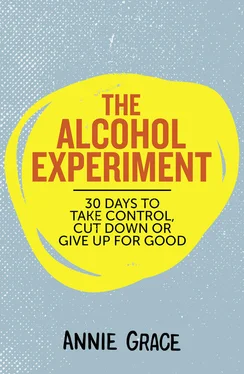
 DAY 3
DAY 3  DOPAMINE AND SEROTONIN
DOPAMINE AND SEROTONIN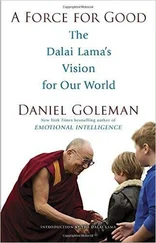

![Джон Харгрейв - Mind Hacking [How to Change Your Mind for Good in 21 Days]](/books/404192/dzhon-hargrejv-mind-hacking-how-to-change-your-min-thumb.webp)



